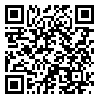BibTeX | RIS | EndNote | Medlars | ProCite | Reference Manager | RefWorks
Send citation to:
URL: http://jams.arakmu.ac.ir/article-1-236-en.html
Introduction: Patients` staying in recovery unit is associated with risks and complications and is expensive. Decreasing the duration of staying can both increase patients` safety and decrease hospital costs. Laryngeal mask airway (LMA) as a new instrument has been widely used for airway management and in this study, its effect on recovery time is investigated.
Materials and methods: In a double blind randomized controlled clinical trial, 62 ASA Ι & Π patients were divided into two equal groups. In one group laryngeal mask and in the other, tracheal tube was used. The anesthetic drugs were similar in both groups. Patients with upper airway infections, as well as patients undergoing thoracic and upper abdominal surgeries were excluded. Those with more than one hour duration of anesthesia and more than 30 seconds need for intubations were also excluded. Duration of anesthesia was measured in minutes. Duration of recovery staying (in minutes) and complications were also recorded. Data was analyzed using Chi Square and Mann Whitney U tests.
Results: There were no significant differences in age, sex and mean time of anesthesia between the two groups. But mean recovery time in LMA group with 10.65 minutes and tracheal tube group with 16.71 minutes was significantly different (P=0.007). Two patients (6.45%) in LMA and 11 patients (35.48%) in tracheal tube group developed complications during recovery period which was a statistically significant difference (P = 0.004).
Conclusion: Laryngeal mask airway, decreased recovery time and the number and severity of respiratory complications. Complications such as cough, laryngospasm, bronchospasm, and arterial hypoxemia were significantly less in patients with laryngeal mask airway compared to patients with tracheal tube, so the use of LMA is recommended.
Received: 2009/03/10
| Rights and permissions | |
 |
This work is licensed under a Creative Commons Attribution-NonCommercial 4.0 International License. |





